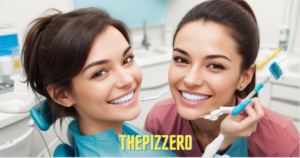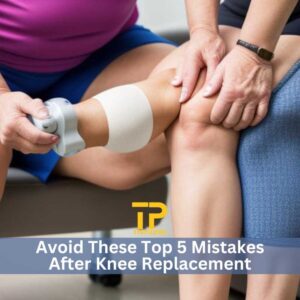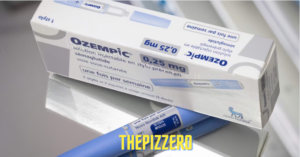Knowledge is Healing: Advancing Patient Education

In the realm of healthcare, knowledge is not just power—it’s a potent form of healing. Advancing patient education is a pivotal strategy that empowers individuals to take charge of their health, make informed decisions, and actively participate in their care journey.
This blog post delves into the profound impact of patient education on healthcare outcomes, the importance of informed decision-making, and effective strategies for advancing patient education to promote wellness, improve treatment adherence, and foster collaborative patient-provider relationships.
Table Of Contents
The Transformative Role of Patient Education in Healthcare
Patient education serves as a cornerstone of effective healthcare delivery, facilitating meaningful interactions between patients and healthcare providers, promoting health literacy, and empowering individuals to become advocates for their own well-being.
By equipping patients with knowledge about their conditions, treatment options, and self-care practices, healthcare providers can enhance treatment outcomes, reduce healthcare disparities, and foster a culture of shared decision-making that respects patient autonomy, preferences, and values in care planning.
Patient education not only improves health outcomes but also nurtures trust, communication, and engagement in the patient-provider relationship, laying the foundation for holistic, patient-centered care experiences that prioritize individual needs and empower patients to navigate their healthcare journey with confidence and knowledge.
The Healing Power of Informed Decision-Making
Informed decision-making lies at the heart of patient education, enabling individuals to understand their health choices, weigh risks and benefits, and actively participate in care decisions that align with their values and goals.
When patients are well-informed about their conditions, treatment options, and prognoses, they are better equipped to make decisions that reflect their preferences, enhance treatment adherence, and improve quality of life.
By engaging patients in shared decision-making processes, healthcare providers can build collaborative partnerships that honor patient autonomy, respect cultural diversity, and promote holistic approaches to care that prioritize individual needs and preferences, fostering trust, respect, and mutual understanding in healthcare interactions.
Strategies for Advancing Patient Education
Personalizing Education to Individual Needs
Personalization is key to effective patient education, as individuals have diverse learning styles, literacy levels, and cultural backgrounds that influence how they process health information. Healthcare providers should tailor educational materials, explanations, and resources to suit each patient’s preferences, using clear language, visual aids, and interactive tools that enhance comprehension and engagement.
By acknowledging and respecting individual differences, providers can create educational experiences that resonate with patients, promote understanding, and encourage active participation in care management, fostering empowerment, confidence, and self-efficacy in navigating complex healthcare information and making informed decisions about their health and well-being.
Utilizing Technology for Health Literacy
In the digital age, technology offers innovative solutions for enhancing health literacy and expanding access to educational resources. Telehealth platforms, mobile applications, patient portals, and online educational modules provide convenient avenues for patients to access reliable health information, communicate with their care team, and engage in self-care practices from the comfort of their homes.
By leveraging technology to deliver educational content, monitor health metrics, and support patient self-management, healthcare providers can bridge gaps in health literacy, promote proactive health behaviors, and empower patients to take ownership of their health journey, fostering independence, empowerment, and resilience in navigating the complexities of healthcare information and decision-making.
Empowering Patients with Dental Implant Knowledge
In the realm of dental healthcare, educating patients about dental implants plays a critical role in their treatment decisions and outcomes. By integrating patient education into dental implant marketing strategies, clinics can significantly enhance patient understanding, satisfaction, and treatment adherence.
Informing potential patients about the benefits, processes, and care practices associated with dental implants empowers them to make informed decisions that align with their dental health goals and lifestyle preferences.
Utilizing clear, accessible language and visual aids can demystify the procedure, alleviate concerns about pain or recovery time, and highlight the long-term value of dental implants in improving quality of life.
The Impact of Patient Education on Healthcare Outcomes
The impact of patient education extends far beyond individual interactions—it influences healthcare outcomes, system efficiencies, and population health on a broader scale.
Educated patients are more likely to engage in preventative behaviors, adhere to treatment plans, and manage their chronic conditions effectively, reducing the burden on healthcare systems and promoting positive health outcomes.
By prioritizing patient education and fostering informed decision-making, healthcare providers can foster a culture of learning, trust, and collaboration that promotes individual well-being, system efficiencies, and optimal health outcomes for all.
In the evolving landscape of healthcare, the importance of informed decision-making and patient education has never been more paramount.
By integrating strategies that personalize education, utilize technology, promote culturally competent care, and encourage active patient engagement, healthcare providers can significantly enhance patient outcomes and foster a more collaborative and respectful healthcare system.
Patient education stands not just as a complementary aspect of healthcare but as a foundational pillar that supports informed choices, autonomy, and empowerment.







